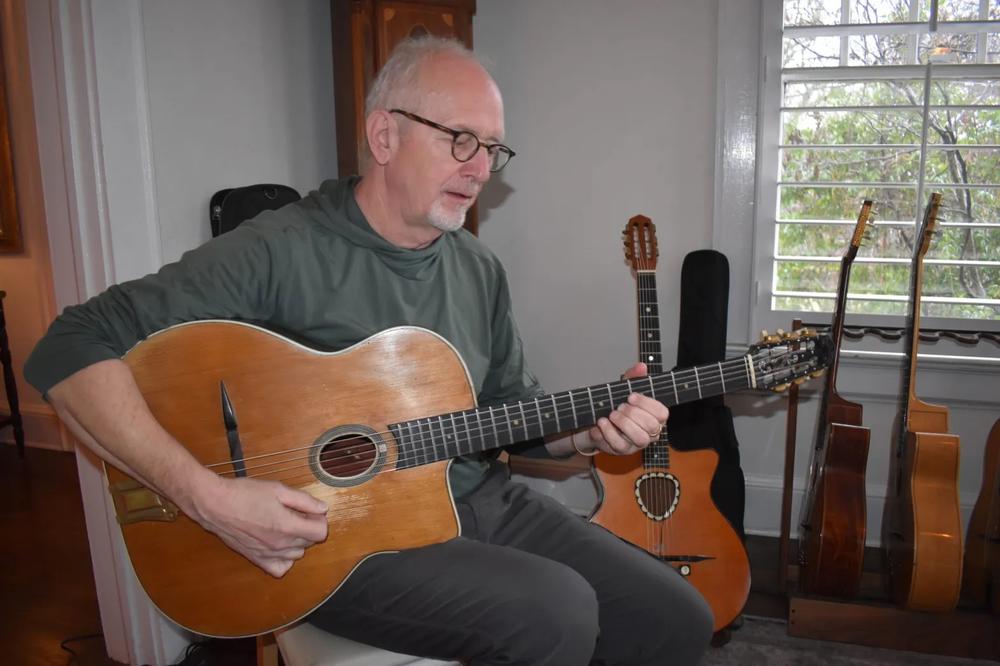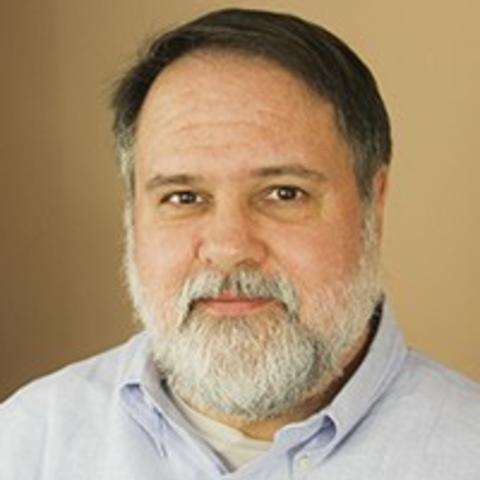
Section Branding
Header Content
Around Town: Charlie Williams’ musical journey from Hendrix to Hampton to Reinhardt
Primary Content

Here’s one way to look at it: Charlie Williams’ winding road to writing and playing music in the style of Django Reinhardt started with a car wreck.
Williams picked up the guitar in high school. He’s 67 now. He grew up in metro Atlanta, a self-described “preacher’s kid” whose family had lived in Georgia for generations. As a teenager, he was consumed by the music of Jimi Hendrix, one of the great rock guitarists. Williams learned to sing Hendrix solos and then to transfer them note-for-note to guitar. “Jimi Hendrix or nothing,” he said recently. “That’s all I was into. … I fell in love with Hendrix because of the freedom in his playing. ”
Still, like many of us at that age, Williams had to figure out what to do with the rest of his life. He went to college, expecting to embark on some kind of career. Guitar seemed at best a sideline.
But things change. During a geology class trip to the coast, the car Williams was riding in crashed. The driver lost control and the car ran off a bridge and into a creek. Williams felt he should have died that day. Instead, he walked away. He remembers grabbing his guitar, climbing the hill, sagging to the ground, and starting to play. “I realized I had a free life,” he said.
He decided that since he should be dead, but wasn’t, he was free to pursue whatever path he wanted for the rest of his life. He didn’t have to listen to anyone. “I didn’t have to worry about the expectations of society. I thought, ‘If I had a free life, what would I do? All I do now is play guitar.” And that was exactly what he wanted to do. So, he transferred to Georgia State University and signed up to major in music and guitar.
During and after classes, he made friends with lots of musicians in and around metro Atlanta. That led eventually to an introduction to local music guru Col. Bruce Hampton. Hampton was and is a legend on the Atlanta music scene. He often is described simply as an “avant garde” musician. He played rock, jazz, fusion, and various other styles of music and led a number of bands with names such as the Hampton Grease Band, the Fiji Mariners, the Aquarium Rescue Unit. Hampton’s groups played in local bars, at neighborhood festivals, and on national tours.
Hampton performed regularly around Atlanta until his death onstage during a 2017 concert at the Fox Theatre that was organized to play tribute to him for his 70th birthday. “What can you say about Bruce Hampton?” Williams asked, eyes widening slightly. “Sometimes he can affect the magnetic fields around you.”
After several years making music with Hampton, Williams decided he needed to move on to something new. “I wasn’t sure what to do next,” he said. “I left Bruce’s band. I wrote a whole lot of music.” He played in various groups.
He decided to go back and listen to some early jazz guitar, especially recordings by the Belgian-Romani guitarist Django Reinhardt. Williams had first heard the music years before, but at the time “I was scared of jazz,” he said. “Still am.” This time, though, something about the music, often called simply “gypsy jazz,” grabbed him. He heard in Reinhardt’s recordings the same freedom he’d heard in Hendrix’s.
Reinhardt died in 1953. In the late 1990s, Williams started writing songs in Reinhardt’s style. “I didn‘t know what to do with this,” he said. “All my musician friends, I’d say, ‘I’m into Django,’ and they didn’t know what to say.’”
In 2000, he gathered a few like-minded musicians and called his new group The Bonaventure Quartet after the street in Atlanta where he lives. “I did my first Django gig at the Echo Lounge for my 45th birthday,” he said.
The Quartet caught on. The increasingly misnamed group — which can muster anywhere from three to eight players (the “double quartet”), depending on the show — performs around metro Atlanta and across several southeastern states. They had a record 50 shows booked before the COVID pandemic shut down touring, he said, and have recorded a handful of CDs, including The Secret Seduction of the Grand Pompadour and Lost and Found at the Clermont Lounge, named for the landmark bar near Williams’ home.
In order to better recreate the sound of music originally composed and recorded before he was born, Williams bought a couple of antique guitars similar to the ones Reinhardt played. They stand in his dining room alongside a 78-rpm record player that can play Django’s mid-20th century recordings.
Williams makes ends meet by teaching guitar. Coming full circle, he shows some students how to play songs by Jimi Hendrix. “I haven’t had a real job since I was, like 23,” he said with a grin. That’s another way to look at it.
This story comes to GPB through a reporting partnership with Rough Draft Atlanta.

